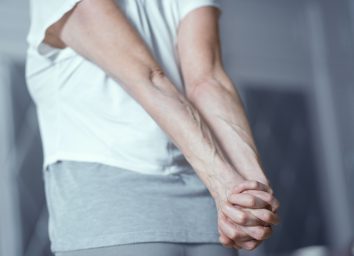What Feeling Down All the Time Does to Your Body, Says Science
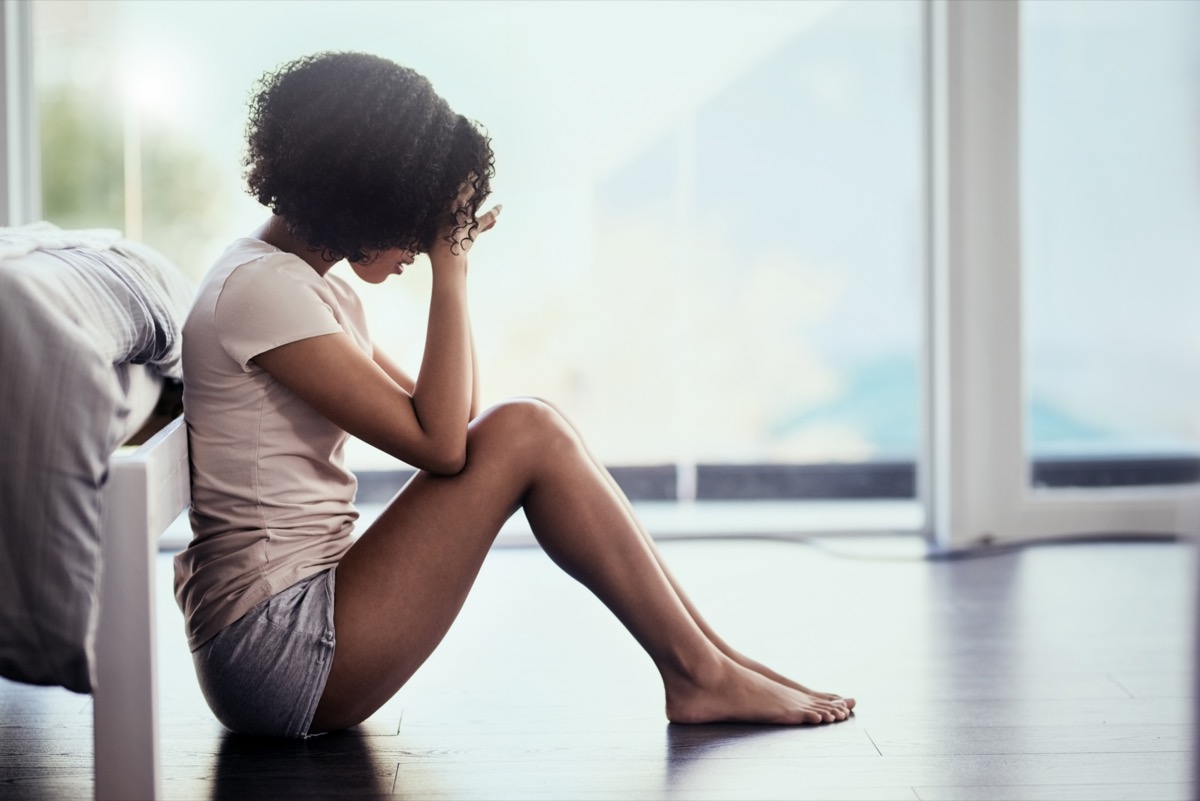
Depression is typically viewed as a mental condition. While that's 100% true, you may be surprised to learn that feeling depressed for too often can actually manifest itself in a number of physical ways, as well. From the tips of your toes to the hair on the back of your neck, your body is conditioned to respond to your thoughts—and depressive thoughts appear to hold particular sway. Keep reading to learn more about how feeling depressed impacts your body. And for more on the strong connection between your mind and your body, don't miss The One Thing You Should Think About When You're Stressed Out, Says New Study.
You feel more physical pain
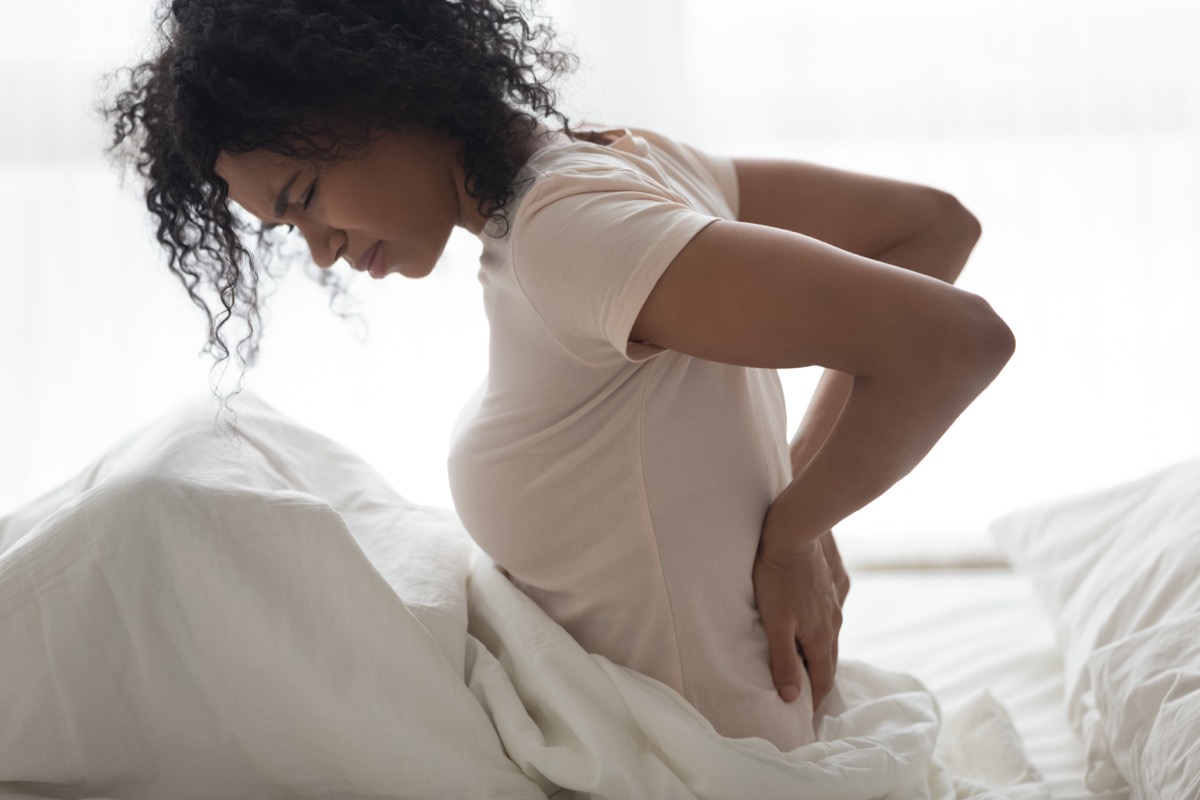
Depression is synonymous with emotional pain, but it can also make an individual more sensitive to physical pain, as well. It's common for those dealing with depression to complain of general soreness and aches all over, although the back, joints, and limbs are usually cited as problem areas.
The relationship between physical pain and depression is a bit like the timeless "chicken and egg" debate. Experiencing lots of pain all day can absolutely lead to depression, but research suggests depression also encourages more pain. Moreover, this study published in The Journal of the Canadian Chiropractic Association in 2017 noted a direct association between depression and lower back pain. And if you're feeling the effects of back pain, don't miss The 1-Minute Workout That Builds Strength and Relieves Pain, According to a Top Trainer.
You have a weakened immune system
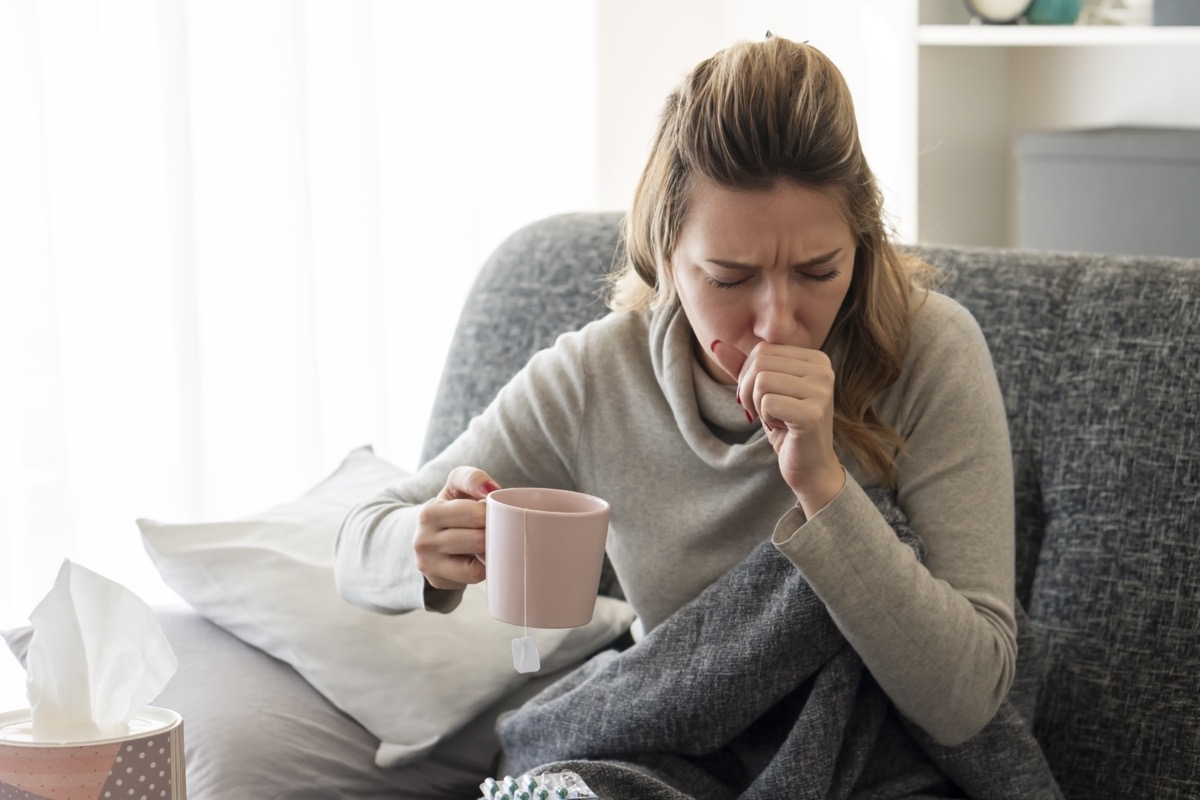
The exact reasons why feeling sad weakens the immune system remains unclear, but in all likelihood, excessive inflammation is involved. In any case, consider this recent research that concluded that COVID-19 vaccines may take a bit longer to take effect when administered to an especially depressed or stressed-out individual due to the toll such states take on immune responses.
Your weight can fluctuate
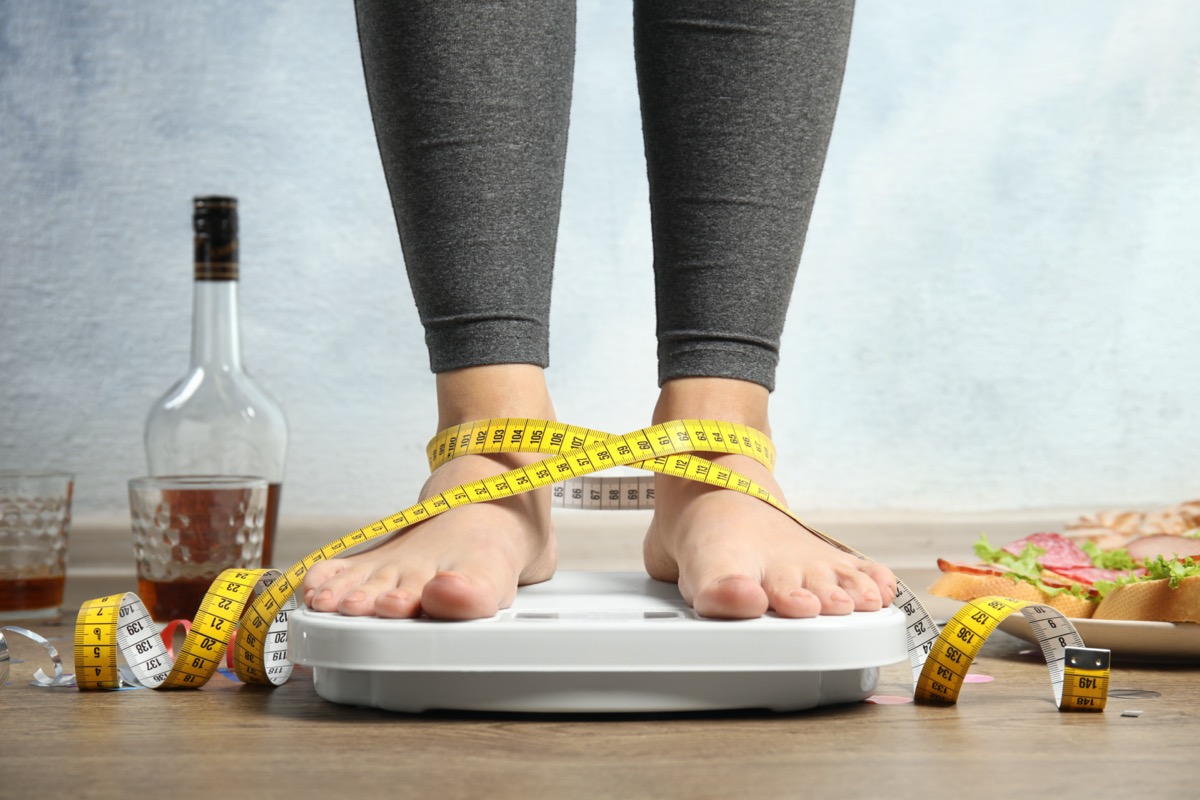
Everyone reacts differently to a bad mood. Some people want to eat more than usual, while others want to steer clear of the kitchen entirely. So, in this cause-and-effect way, depression can induce both increases and decreases in weight and BMI.
This study from 2019 found a positive association between depression and emotional eating, with both conditions predicting a bigger increase in BMI year over year. On the other end of that spectrum, depressive thoughts can put one at increased risk of developing an eating disorder like anorexia.
You experience digestive issues
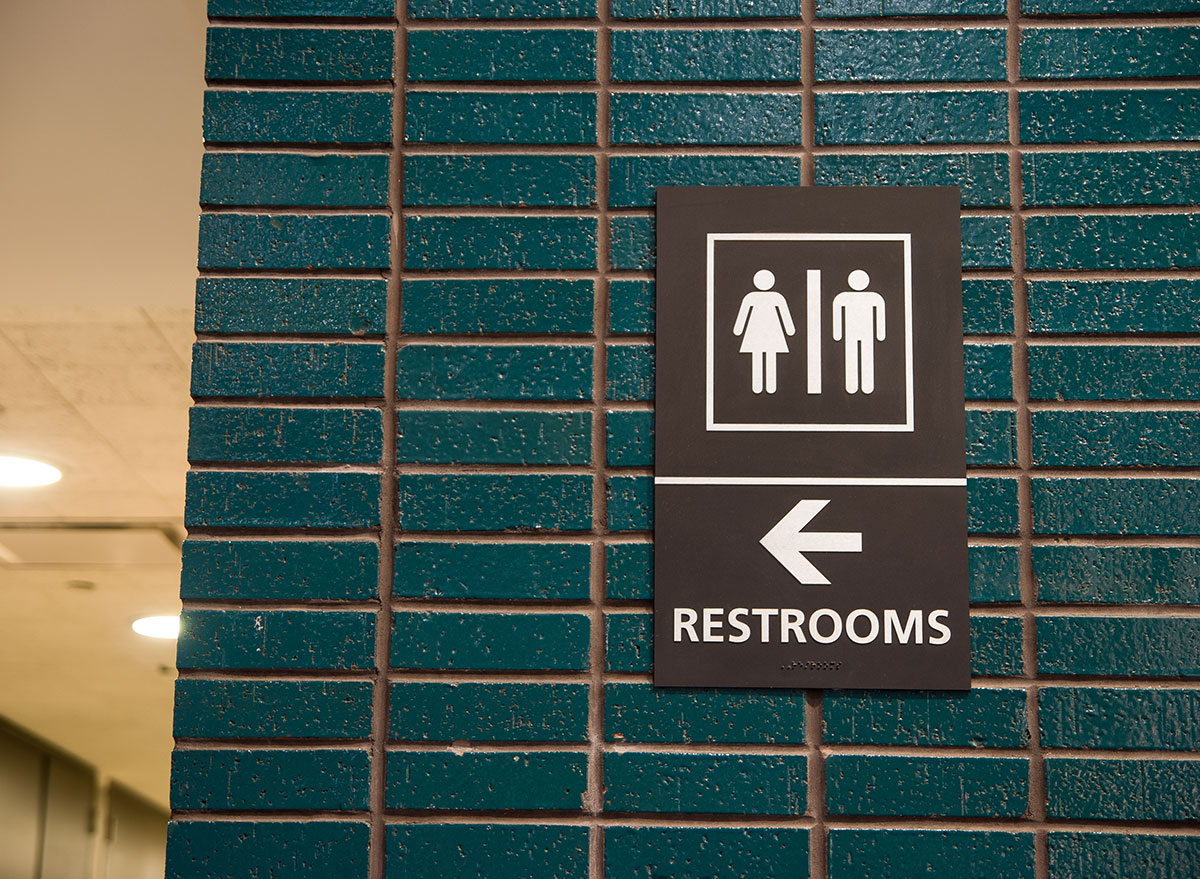
Depression is even hard to digest for our stomachs. Despite depression originating in the mind, it's quite common for all that negativity to make its way down to the gut and start introducing a little chaos. So, if you've been feeling down lately and just so happen to also be dealing with unexplained stomach issues (nausea, diarrhea, bloating), your bad mood may be to blame.
The brain chemical serotonin may be behind this phenomenon. Serotonin is known to help manage mood and temperament, but guess where it's created and stored? The gut.
You experience changes in your sleep
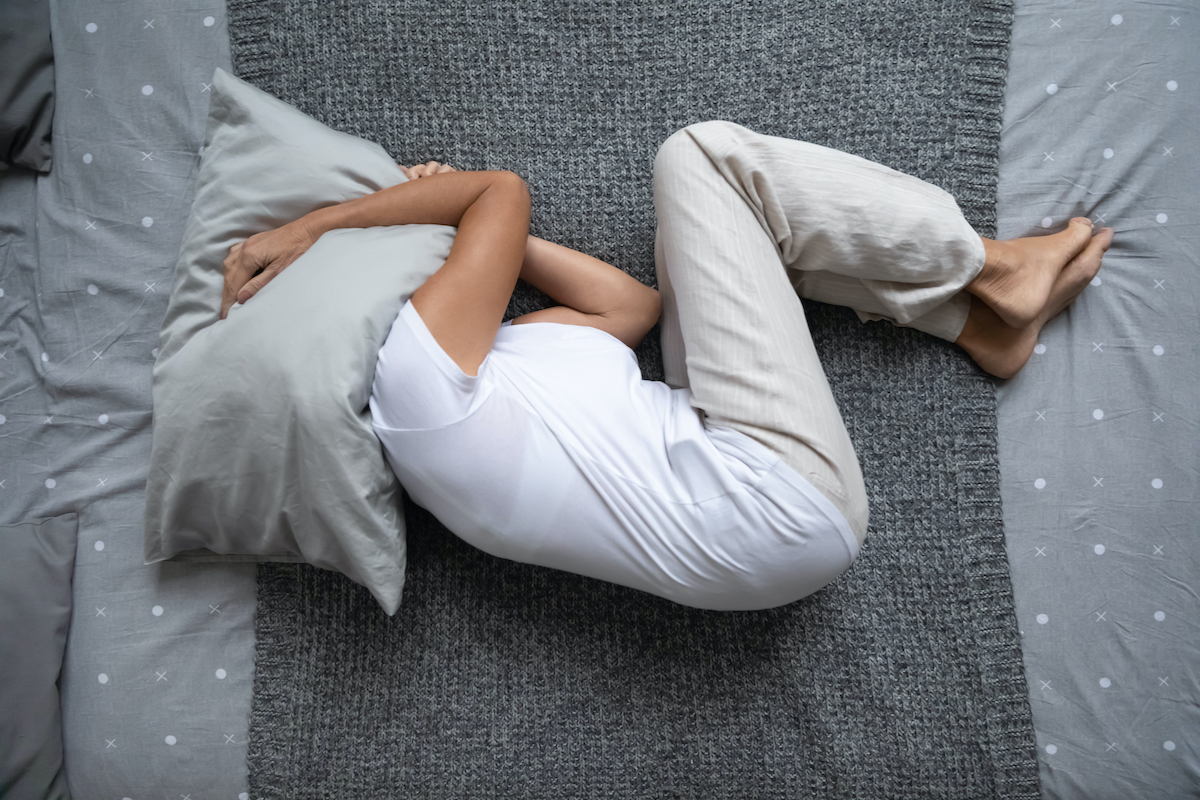
Sleep changes are some of the most well-known physical repercussions of depression. When someone is feeling depressed, the world can feel like a cruel, unwelcoming place. Consequently, many depressed individuals end up staying in bed and sleeping much more than usual. It's common in such cases for the person to say sleep is one of the few activities they still enjoy. That being said, others frequently report difficulty sleeping or even full-blown insomnia during a bout of depression. And for some great sleep advice, don't miss The Best Trick for Going Back to Sleep After Waking Up at Night, Say Doctors.


